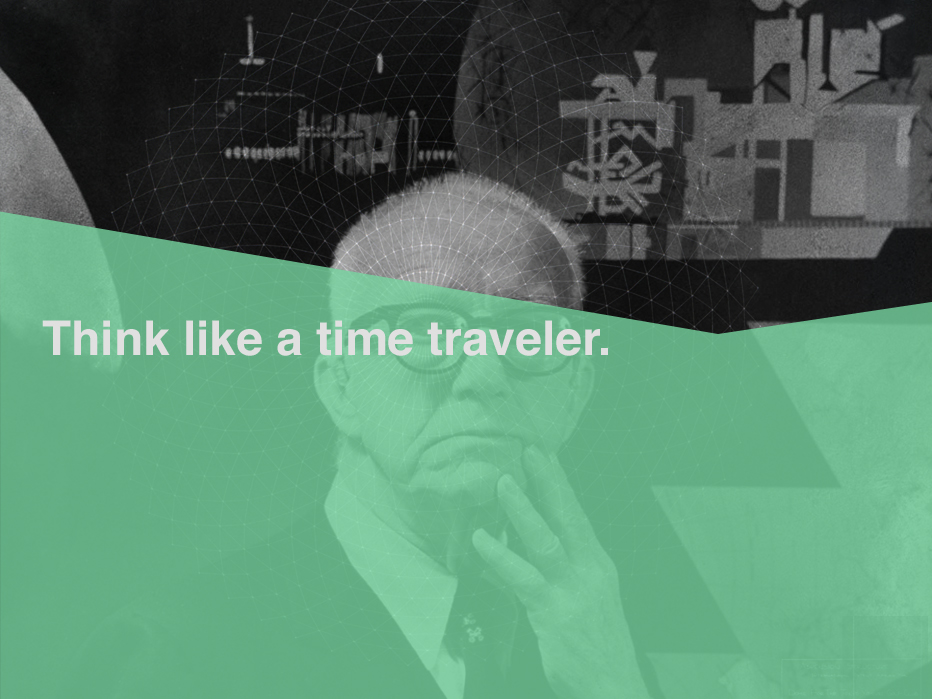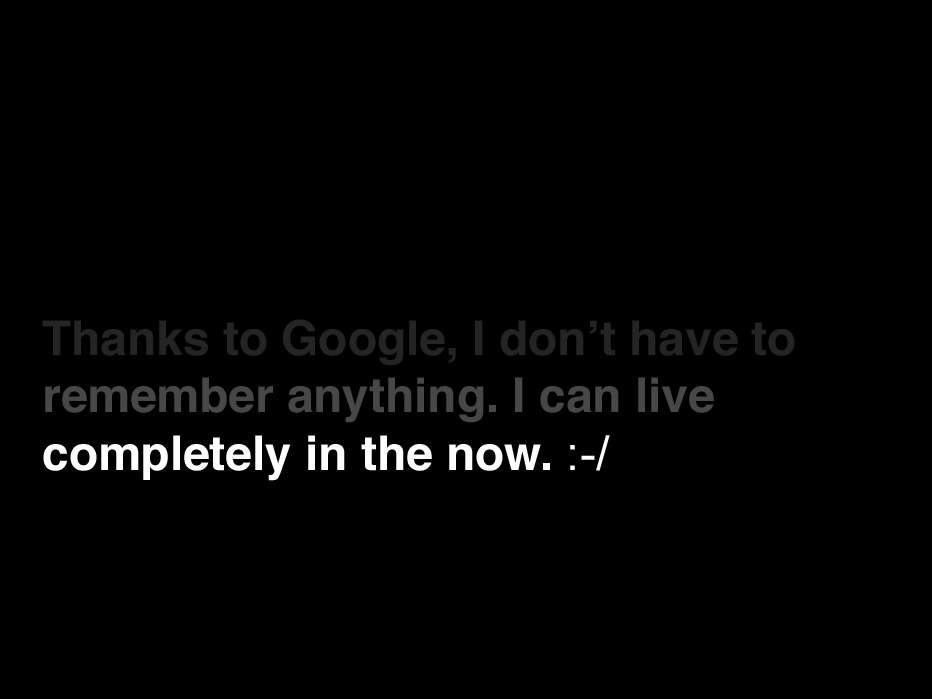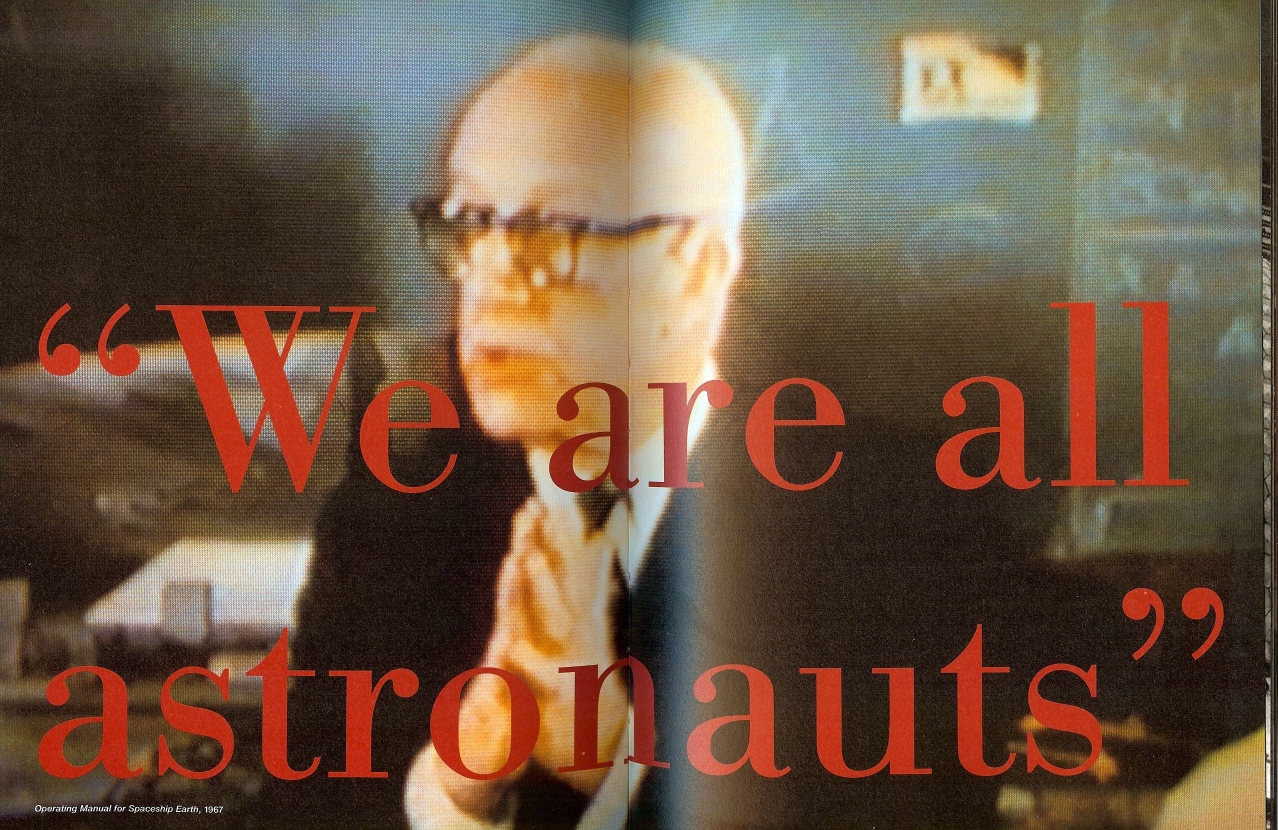
This is really about taking a long view of things.
Earlier in my presentation, I showed the slide below. After my head injury and piecing my life back together through gathering all of the data I’ve created from emails, calendar entries, blog and facebook posts, etc., I realized something scary: Thanks to Google, I don’t have to remember anything. I can live completely in the now. I added that emoticon to show that I’m not so sure this is a good thing.

What if Google were to fail? Remember, no entity is too big to fail! Do we really want to entrust our memory to a machine? This is why I think the time traveler metaphor works…
In The Time Machine, the moment that H.G. Wells’ time traveller disappears from his lab, he begins to follow a timeline that is outside of that of the inexorable forward-thrust of the universe. He continues to skip forward in time, ultimately witnessing the cold death of Earth before finally returning to his own time. This man will never again be able to think solely in terms of his own life’s timeline. He certainly can’t depend on any technology to hold on to the memory of his travels for him, because that memory extends beyond the confines of technology contemporary to him, as well as any future technology he encountered. All of the sudden, he not only has a long view of things, but his memory is forcibly shaped by that long view.

Another example (of course I had to sneak Bucky in here somehow): But I think he’s a perfect example of someone who thought like a time traveler. Think about it- most of what he wanted to do and worked for was not realized in his lifetime- still isn’t! But knowing that his own timeline wasn’t long enough to include the fruit of his efforts never stopped him. Only a person with a perspective like that could conceive of wild ideas like cities in floating spheres or a completely provided-for humanity.
Ok, so back down to earth. We’re web developers, not genius inventors. But, there are practical applications of this idea. Any project we work on will have immediate goals, and then future goals, some of which can be anticipated early if you’ve got your mind in the right place. This is what we need to do. We need to build for the long haul, making choices that support scalability and flexibility for when new information changes how things need to be used. That’s a long view for our industry.


